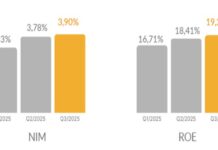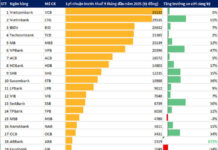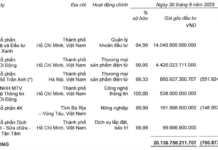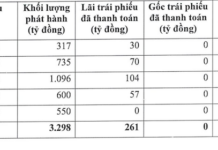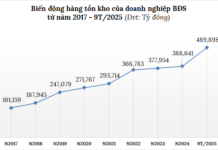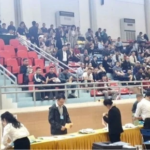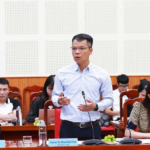Only 1 Licensed Project for the Year
The Hanoi Department of Construction has granted a construction permit for the high-rise apartment building CT1 in the Thuong Thanh – Long Bien Social Housing Area to a joint venture between Himlam Thu Do Joint Stock Company and BIC Vietnam Joint Stock Company. The construction permit is valid for 12 months from the date of issuance.
The project is located on a land lot with the code CT1, with a total area of over 5,100 square meters and a construction area of approximately 3,300 square meters.
According to the adjusted detailed planning decision at the scale of 1/500, the CT1 apartment building will provide about 600 apartments, accommodating a population of nearly 1,700 people. CT1 is the only social housing project to receive a construction license this year.
Last year, in 2023, Hanoi also had a single social housing project, located in the Thanh Lam – Dai Thinh 2 new urban area in Me Linh District, with the Housing and Urban Development Corporation (HUD) as the investor, which was granted a construction permit.
A report by the National Assembly’s Supervisory Delegation on the management of the real estate market and social housing in the period 2015 – 2023 revealed that many localities with high housing demands have fallen short in their implementation compared to the goals set in the project to build one million social houses by 2025.
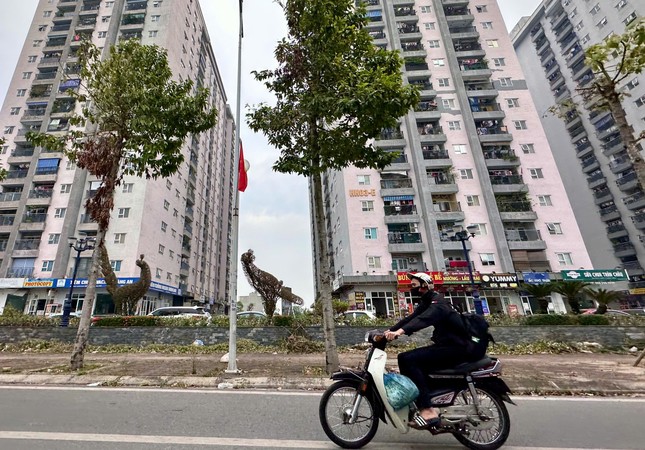
The number of social housing units implemented is still insufficient to meet the demand (Photo: Nhu Y).
For example, Hanoi was supposed to build 18,700 units by 2025, but so far, only 3 projects (providing 1,700 units) have been started, achieving just 9% of the target. Ho Chi Minh City needs to construct 26,200 units by 2025, but has only reached about 19% of its goal, with nearly 5,000 units. Similarly, Da Nang has achieved 43% of its target, delivering 2,750 units across 5 projects.
Moreover, several localities have not had any social housing projects commenced since 2021, including Vinh Phuc, Ninh Binh, Nam Dinh, Long An, and Quang Ngai.
In an interview with Tien Phong Newspaper regarding the development of social housing in Hanoi, several investors shared their concerns about the persistent issue of “red tape.” They pointed out that many procedures are slow to be implemented, and the city’s attention and solutions to this matter have not been truly vigorous and effective.
The Supervisory Delegation of the National Assembly remarked, “Most localities have not completed their social housing development targets.”
A National Assembly Resolution on Social Housing is Needed
Mr. Le Huu Nghia, CEO of Le Thanh Company, shared that building social housing requires a harmonious collaboration between the government, businesses, and the people. He suggested that management agencies should continue to improve policies and create favorable conditions for businesses to develop projects with transparency and efficiency.
Mr. Nghia believes that to ensure social housing reaches the right beneficiaries, there is a need to establish a strict control mechanism while also allowing for easier transfers. This approach will enhance the efficient use of resources and curb speculation.
According to Mr. Nghia, businesses participating in social housing development are currently facing challenges with their own capital investments and rigorous inspections and project approvals. Therefore, authorities should provide financial support mechanisms for both investors and homebuyers. Without special incentives in terms of interest rates and loans, attracting investment into the social housing segment will remain difficult.
On the sidelines of a recent real estate workshop, Mr. Le Xuan Nghia, a member of the Advisory Council for Monetary and Financial Policy, emphasized the need to develop a National Assembly Resolution related to social housing and real estate projects to comprehensively address the current shortcomings.
“This is not only the hope of real estate businesses but also the solution to the housing needs of millions of people. If we don’t act promptly, the market will continue to be stuck in a vicious cycle, and investment and development opportunities will be missed,” said Mr. Nghia.
The Taxman Cometh: The Second Home Edition
The Ministry of Finance proposes studying the implementation of taxation on personal income from real estate transfers based on holding periods, drawing from the experiences of several countries. This progressive approach aims to create a fair and efficient tax system, ensuring that individuals contribute proportionally to their gains from real estate investments.








